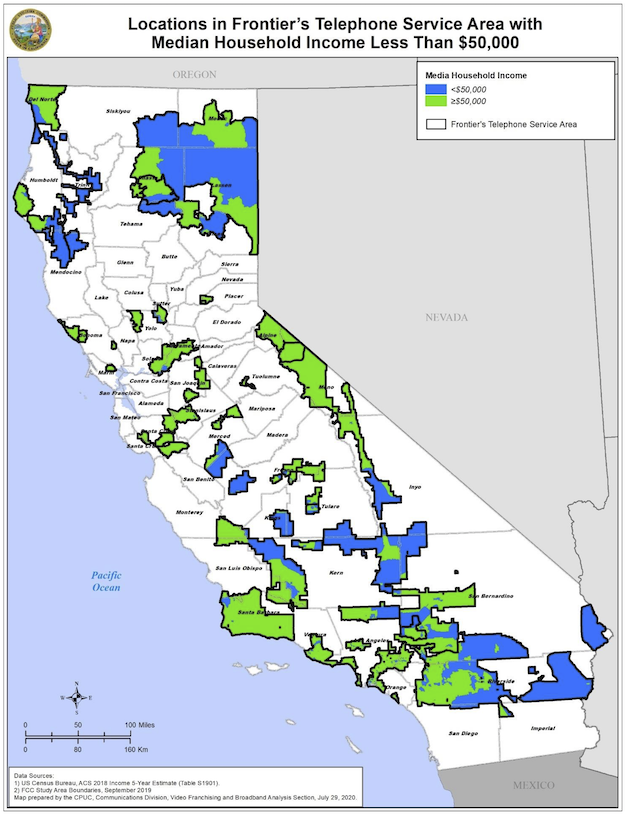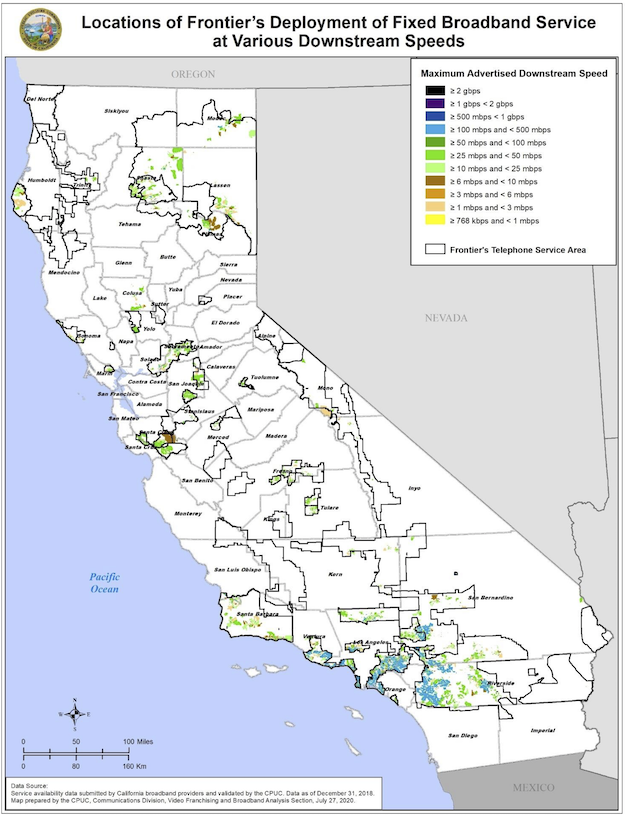A “collection of facts” about Frontier Communications’ history as a broadband and telephone service provider in California will serve as a primer for members of the public that want to weigh in on the California Public Utilities Commission’s review of the company’s bankruptcy settlement.
The report analyses the thousands of complaints about Frontier’s service and billing practices over the years, and the service quality problems it continues to have. In some respects, Frontier is doing better – it’s on track to have fewer complaints this year than last – but it has continuing issues with service outages and repair times.
According the CPUC’s analysis, more than half of the households in Frontier’s service territory – 1.3 million homes – make less than $50,000 a year and qualify as low income. Of those, 69,000 are held hostage to a monopoly: Frontier is “the only service provider” offering wireline phone service of any kind. As a practical matter, that means those homes can only get wireline broadband service from Frontier, too. If they can get it – the CPUC report also illustrates the gaps – some quite large – where Frontier offers no broadband service at all.
Frontier’s response to the report was to complain that most, if not all, of the information in the report is either inaccurate or irrelevant. It doesn’t want the report to be treated as formal evidence in the CPUC’s review of its bankruptcy settlement, particularly consumer complaint statistics, service quality metrics and details on the infrastructure construction subsidies it’s received from the California Advanced Services Fund.
The Communications Workers of America – the primary union for telecoms workers in California – and TURN, a utility reform advocacy group, also want to keep the report out of the evidentiary record. As with Frontier’s response, their objections were based on legal procedure. On the other hand, they endorsed it as a valuable resource for background information, which might be useful for two public events, a workshop and a forum, both scheduled for next week on Wednesday 7 September 2020.


